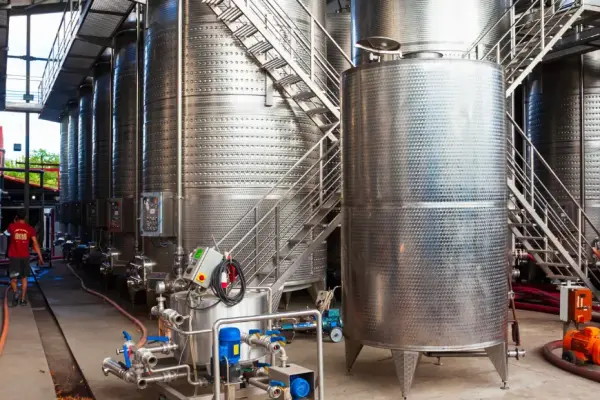
DEKRA Advisory & Training
Looking for an emergency pressure relief system? Explore the benefits.

DEKRA Advisory & Training
Looking for an emergency pressure relief system? Explore the benefits.
Emergency Pressure Relief Systems
Failsafe emergency pressure relief solutions
A well-designed, properly operated emergency pressure relief system provides cost-effective, reliable protection to process industries at risk for overpressure situations, such as the chemical, pharmaceutical and related sectors.
These systems protect reactors, storage tanks, columns, dryers and other process equipment, but must be correctly designed, operated and maintained throughout their lifecycle in order to perform their safety functions successfully. Our team of specialists has significant expertise in performing emergency pressure relief vent sizing studies and can design or offer advice on every aspect of these systems. We integrate the initial hazard assessment and choice of design scenarios with the generation of necessary data in our specialist laboratories.
Your Benefits
- A suitable emergency pressure relief
- Comprehensive data for the entire emergency steering system
- In-house training on emergency pressure relief
Our Approach
Emergency relief systems must be designed specifically for an individual process and installation. Opting for a “standard” size will generally be inadequate, as there are numerous factors to take into consideration. Our approach is methodical, thorough and scientific, starting with a design procedure based on DIERS standards.
Following DIERS, the main components of our emergency relief systems services are as follows:
- Identification of credible risk scenarios: we analyze each scenario, characterizing it and calculating the required relief area
- Reactive and non-reactive systems: some calculations and procedures vary depending on the type of system in play
- Data provision: data gathered describes the overall kinetics, thermochemistry and physical property characteristics under the relief conditions
- Disposal system design: for safety and environmental protection reasons, the discharge must be carefully considered to prevent a secondary incident
- Documentation: documenting hypotheses, scenario identification, process and experimental data , calculations and conclusions are necessary, as changes to the facilities will rely on this information to prevent re-calculation of existing devices, or designing new equipment with different criteria
- Inspection and maintenance: we use RBI and RBM principles to design maintenance and inspection programs
Why DEKRA?
- We have an officially recognized expertise in conducting and planning emergency pressure relief system studies.
- We are the winners of the Institution of Chemical Engineers Safety and Environmental Award 2001 for our design of a pressure relief system that includes multiple vessels in a factory to manufacture a pyrophoric product.
- We advise you objectively and professionally based on technical principles and best practices.